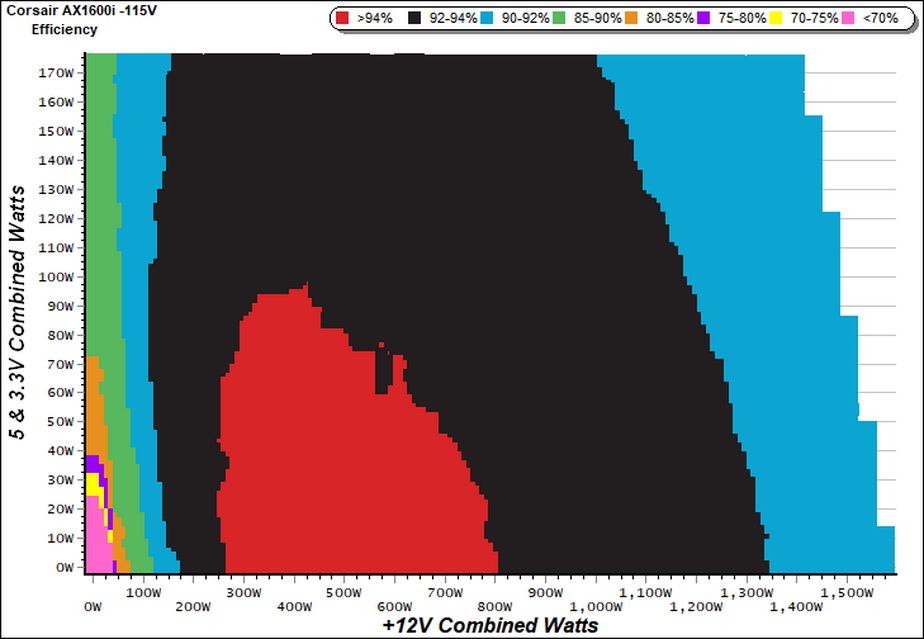Corsair AX1600i PSU Review
Why you can trust Tom's Hardware
Cross-Load Tests & Infrared Images
Our cross-load tests are described in detail here.
To generate the following charts, we set our loaders to auto mode through our custom-made software before trying more than 25,000 possible load combinations with the +12V, 5V, and 3.3V rails. The load regulation deviations in each of the charts below were calculated by taking the nominal values of the rails (12V, 5V, and 3.3V) as point zero. The ambient temperature was between at 30°C (86°F) to 32°C (89.6°F).
Load Regulation Charts
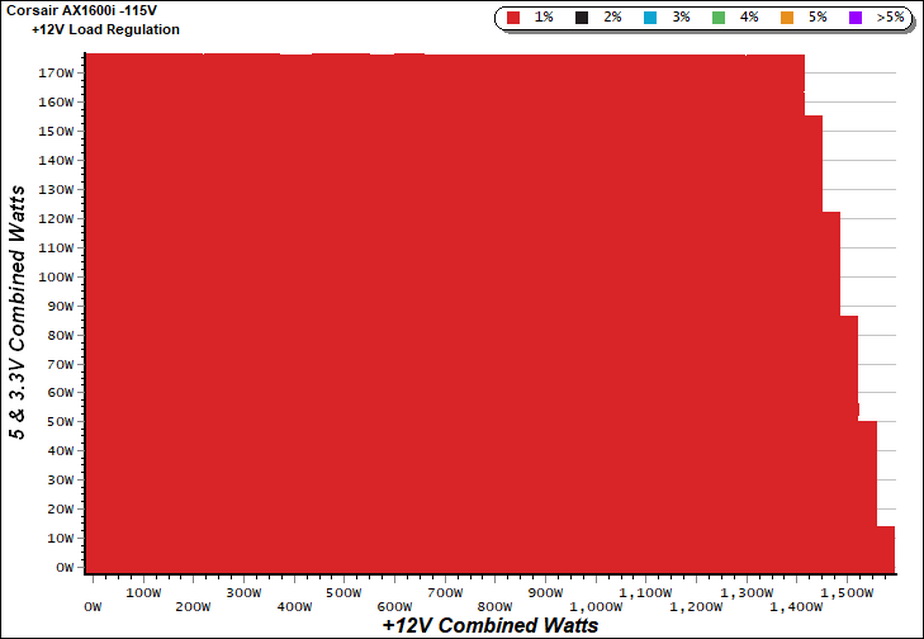
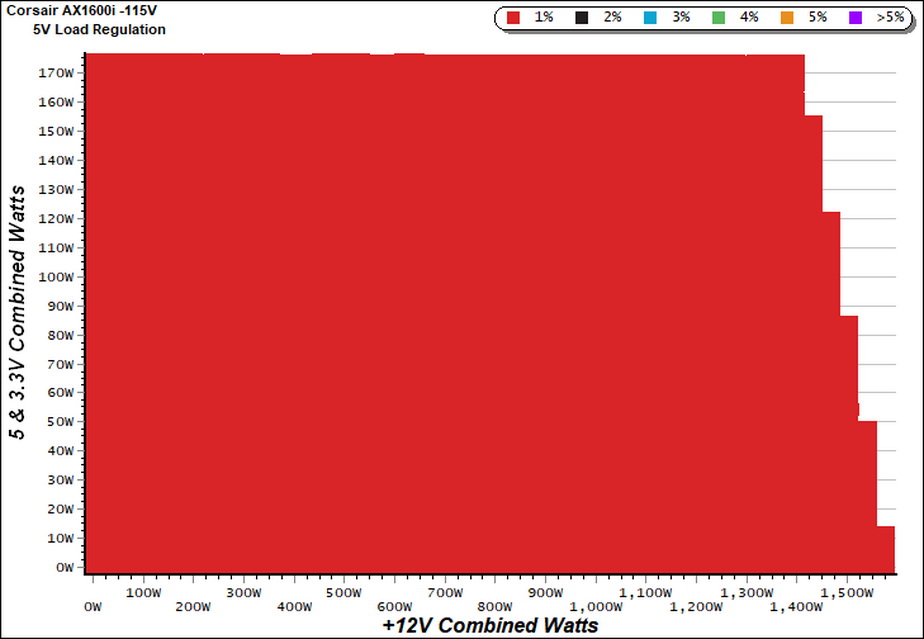
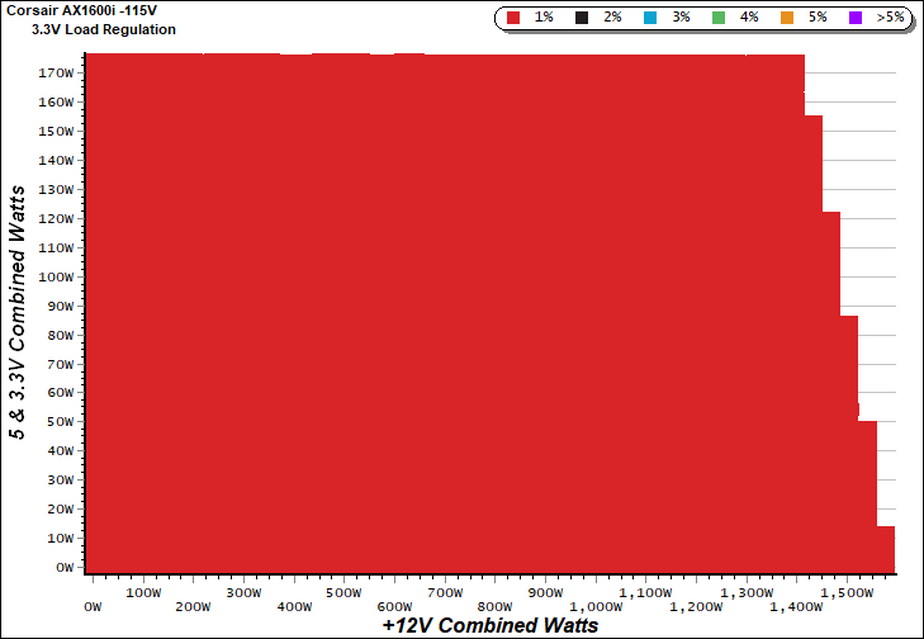
Efficiency Chart
Check out that large red area where efficiency is over 94%. We don't remember ever seeing another PSU achieving over 94% efficiency with 115V input under so many load combinations.
Ripple Charts
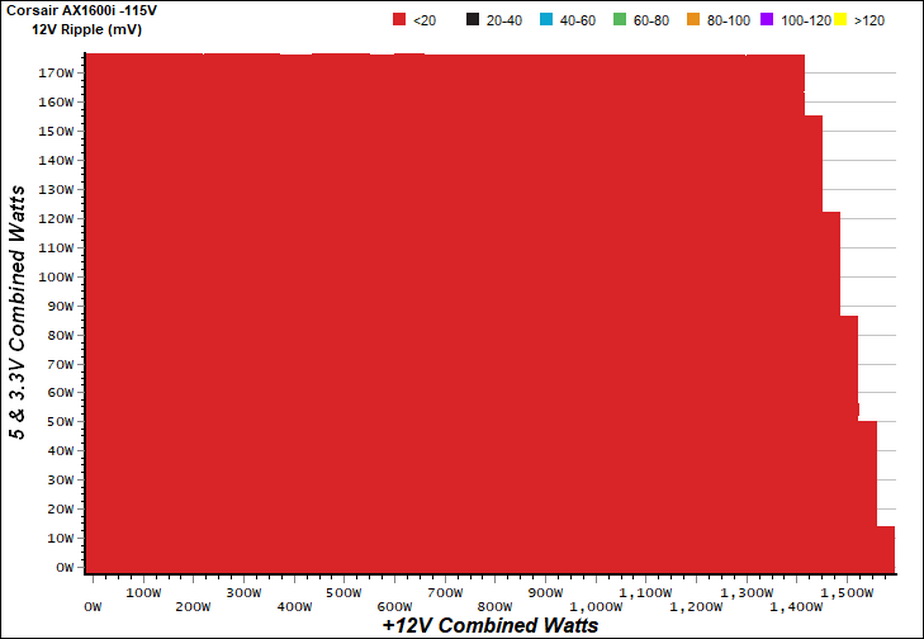
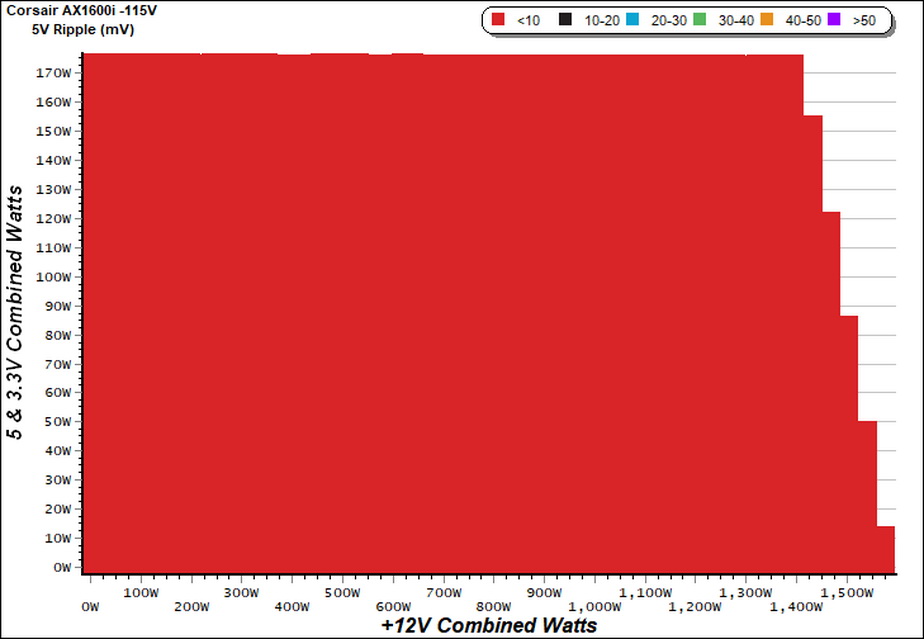
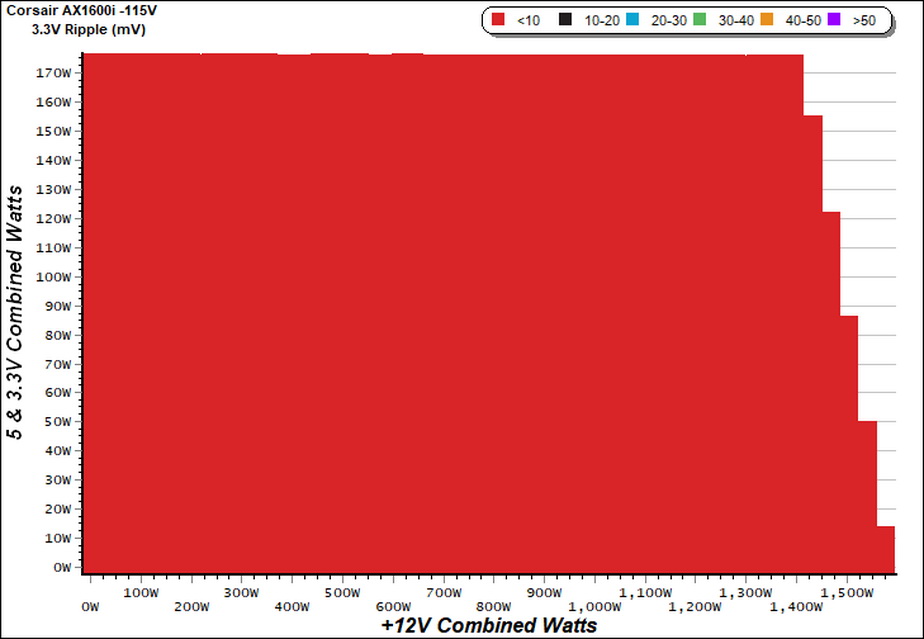
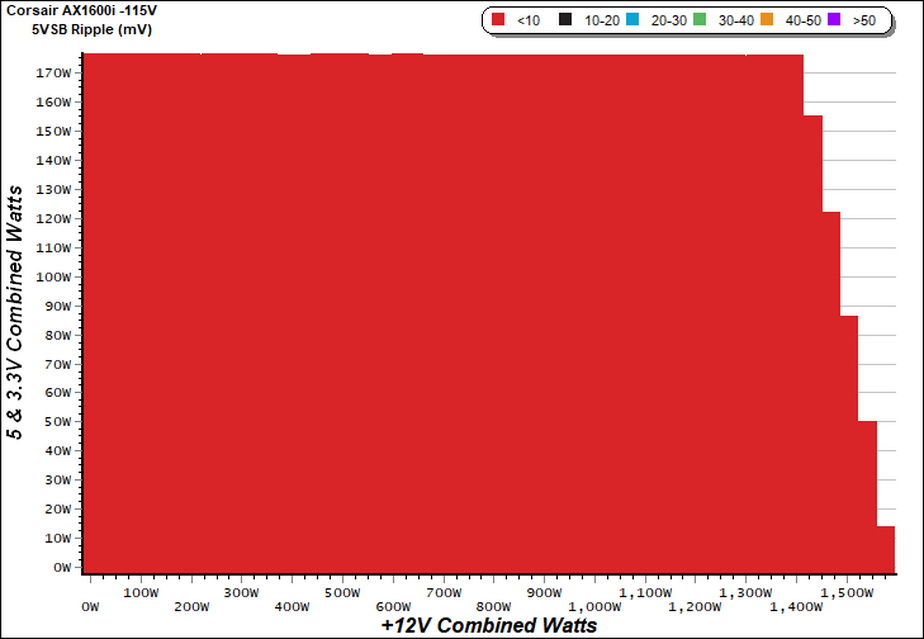
Infrared Images
We applied half-load for 10 minutes with the PSU's top cover and cooling fan removed before taking photos with our modified FLIR E4 camera that delivers 320x240 IR resolution (76,800 pixels).
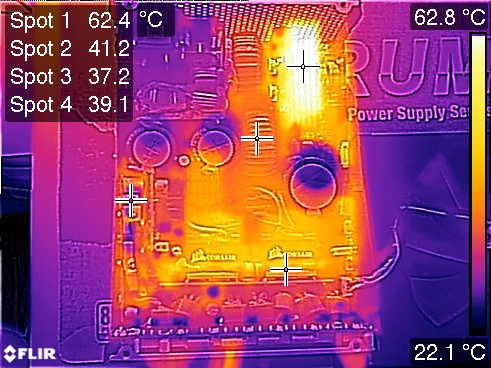
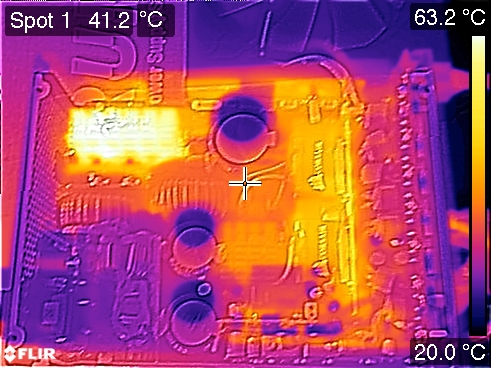
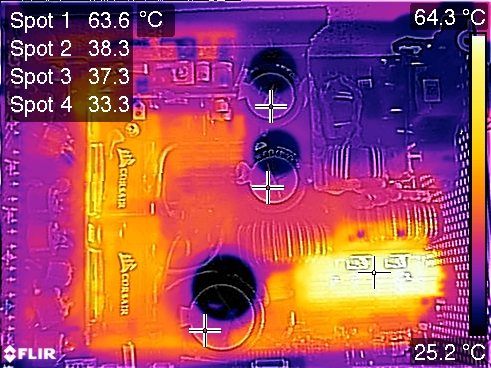
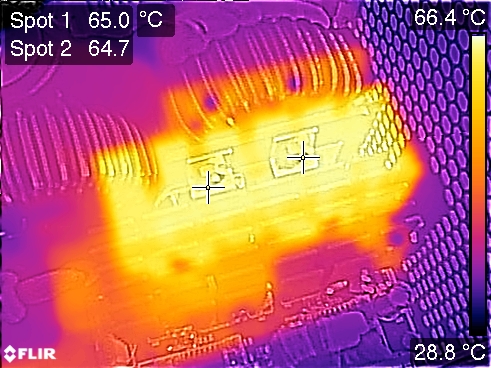
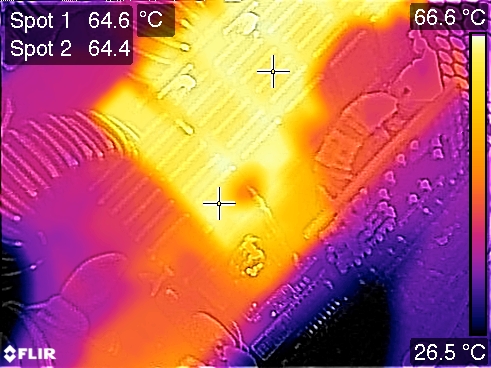
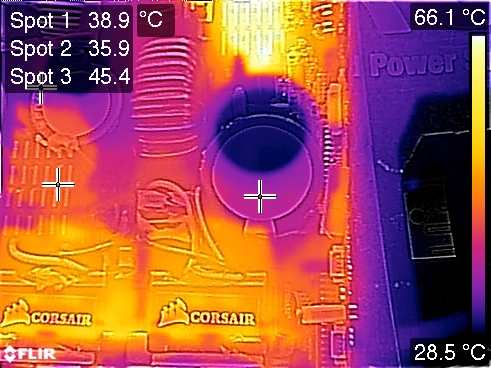
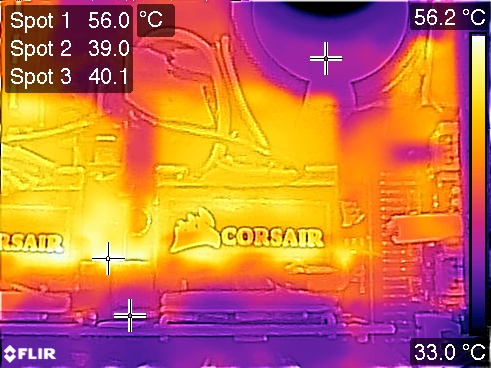
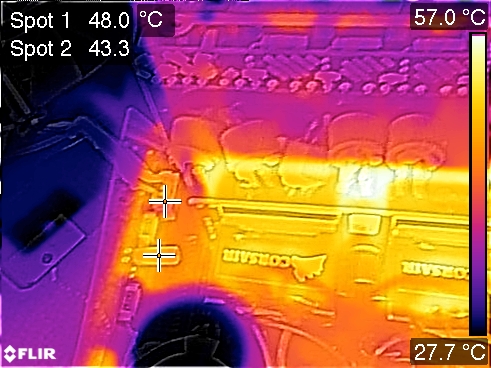
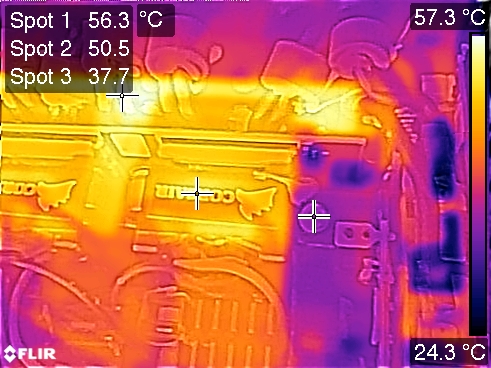
Our measured temperatures are generally low thanks to the AX1600i's high efficiency. The only heat sinks that exceed 60°C belong to the PFC converter; they host the silicon and GaN FETs. Even the bulk caps remain relatively cool, despite their lack of active cooling during these tests.
MORE: Best Power Supplies
MORE: How We Test Power Supplies
Get Tom's Hardware's best news and in-depth reviews, straight to your inbox.
MORE: All Power Supply Content
Current page: Cross-Load Tests & Infrared Images
Prev Page Protection Features Next Page Transient Response Tests
Aris Mpitziopoulos is a contributing editor at Tom's Hardware, covering PSUs.
-
Quaddro all of we need is 500w class digital titanium++ psu with this advance technology..Reply
Well, pc is much more efficient right now..
I wonder how many people will use it anyway... -
Aris_Mp Videos working fine here.Reply
PCs are more efficient, however graphics cards once pushed are not and many users tend to overclock their GPUs. Moreover, those units are intended for multi-GPU systems. -
SoerenHedemand Do you do you fan and noise measurements with 110V or 220V? That should make a difference in this case at least.Reply -
Aris_Mp Reply20574970 said:Do you do you fan and noise measurements with 110V or 220V? That should make a difference in this case at least.
115V but I also take noise measurements with 230V because of Cybenetics.
115V: 23.25 dB(A)
230V: 23.29 dB(A)
-
SoerenHedemand Specifically at what point does it change from passive to active cooling using either 110V or 220V?Reply -
ptlin.ece90g Primary DSC should be NXP Freescale MC56F8236Reply
Secondary DSC is Texas Instruments UCD3138064A
